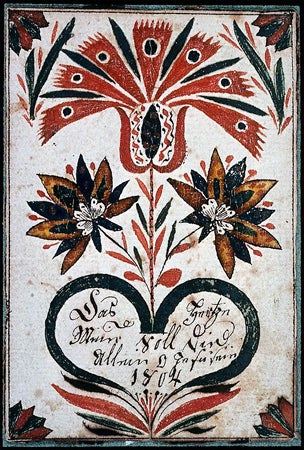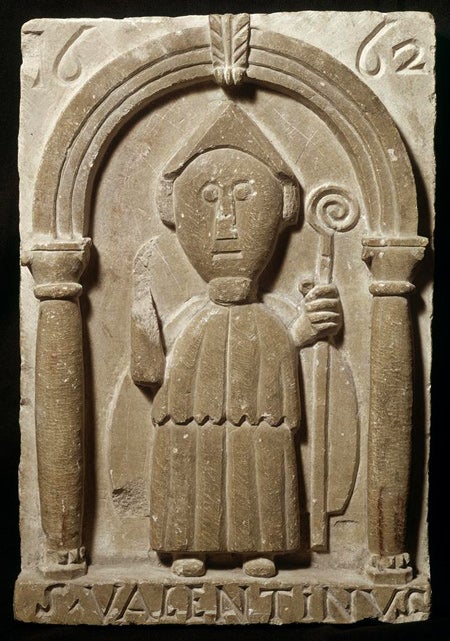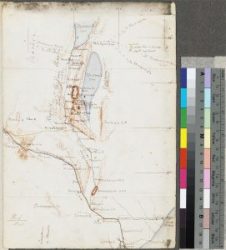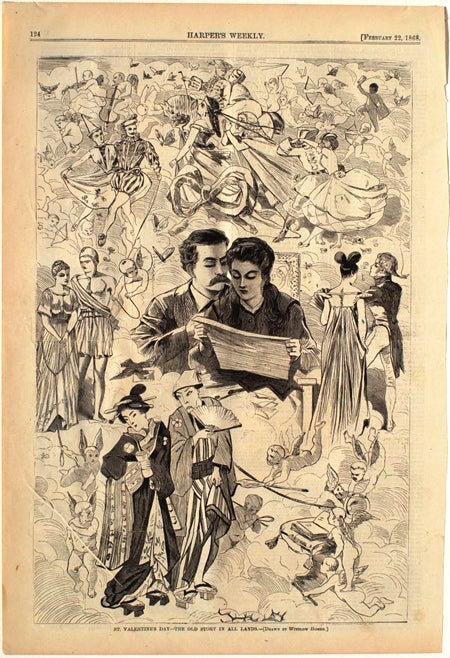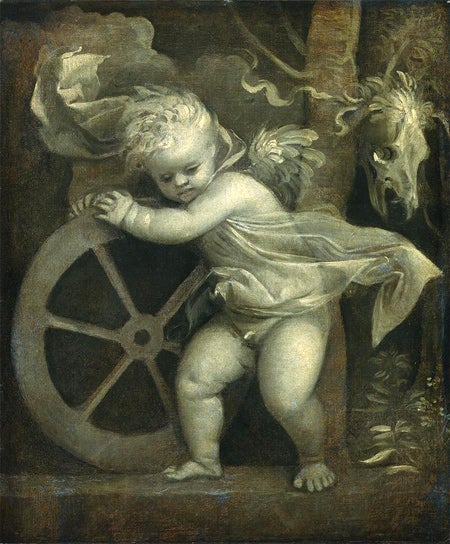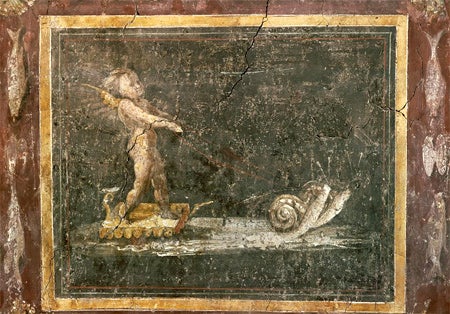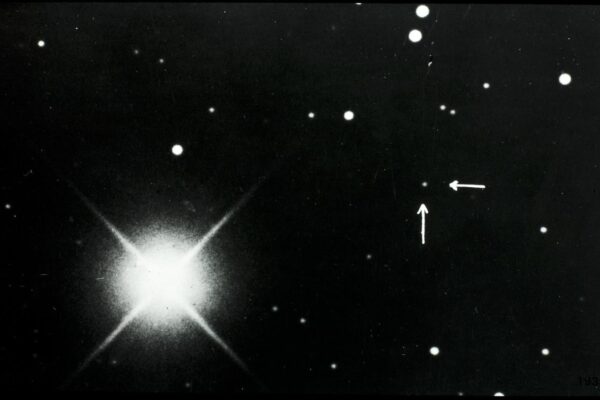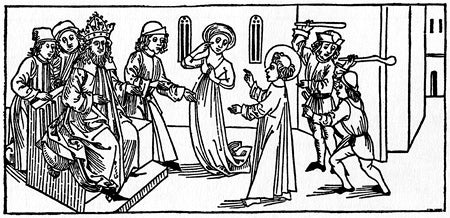
February 14 is Valentine’s Day! Of course you know it’s the day in which you are supposed to express love for your sweetheart with flowers, candy, or greeting cards. And you probably know that it’s purportedly a holiday to honor an early Christian saint named Valentine. But did you know that there was more than one Saint Valentine? Valentine’s Day honors two martyrs: Valentine of Rome, a priest, and Valentine of Terni, a bishop. Maybe most surprising is that neither of them had much to do with romance. In the 13th century, Jacobus de Voragine’s The Golden Legend reported that St. Valentine (without clarifying which one) was executed after refuting Roman Emperor Claudius II’s attempts to convert him to paganism. Over time, the story was embellished to specify that Valentine’s arrest and execution resulted from performing Christian marriage ceremonies against Claudius’s edict.
We don’t see many images of St. Valentine on his holiday, possibly because martyrdom won’t put your sweetheart in a romantic mood (though you’re welcome to test it out by showing them the 15th century woodcut from The Illustrated Bartsch above). Instead, in addition to hearts, we often see images of cupid, the god of desire, affection, and erotic love from Roman mythology. Cupid was a popular motif in Medieval and Renaissance art, and a keyword search in the Artstor Digital Library results in more than 1,000 images. The whimsical image included in our slide show of “Cupid on a Wagon Drawn by Snails” by the workshop of Raphael (from Italian and other European Art (Scala Archives)) seems to encourage love to move slowly, while Titian’s contemporaneous “Cupid with the Wheel of Fortune” (from the National Gallery of Art ) strikes a gloomy note, capturing the downside of the vagaries of romance. More happily, Winslow Homer’s illustration from Harper’s Weekly (courtesy of the Sterling and Francine Clark Art Institute Collection), rife with cupids, reminds us that love transcends all eras and cultures.
We wish you a happy Valentine’s Day with a lovely watercolor of a heart that reads “My heart shall be thine alone,” courtesy of an anonymous romantic (from the Museum of Fine Arts, Boston).
